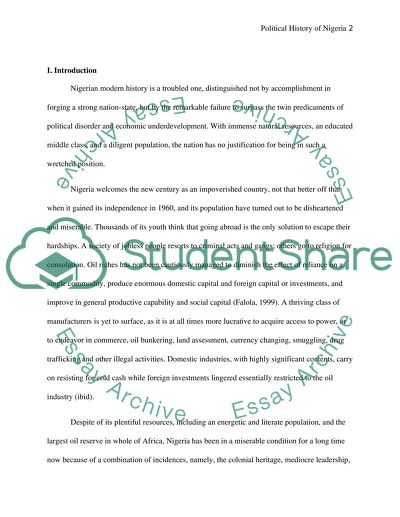Cite this document
(Political History of Nigeria Coursework Example | Topics and Well Written Essays - 2000 words, n.d.)
Political History of Nigeria Coursework Example | Topics and Well Written Essays - 2000 words. https://studentshare.org/politics/1550587-nigeria-then-and-now
Political History of Nigeria Coursework Example | Topics and Well Written Essays - 2000 words. https://studentshare.org/politics/1550587-nigeria-then-and-now
(Political History of Nigeria Coursework Example | Topics and Well Written Essays - 2000 Words)
Political History of Nigeria Coursework Example | Topics and Well Written Essays - 2000 Words. https://studentshare.org/politics/1550587-nigeria-then-and-now.
Political History of Nigeria Coursework Example | Topics and Well Written Essays - 2000 Words. https://studentshare.org/politics/1550587-nigeria-then-and-now.
“Political History of Nigeria Coursework Example | Topics and Well Written Essays - 2000 Words”. https://studentshare.org/politics/1550587-nigeria-then-and-now.


